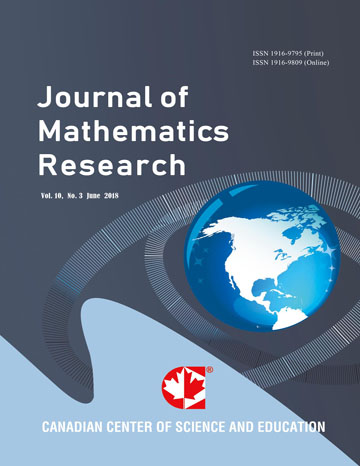Distribution of the Largest Strong Goldbach Numbers Generated by Primes
- Pingyuan Zhou
- Rong Ao
Abstract
Using the first 4000000 primes to find Ln, the largest strong Goldbach number generated by the n-th prime Pn, we generalize a proposition in our previous work (Zhou 2017) and propose that Ln ≈ 2Pn and Ln/2Pn < 1 for sufficiently large Pn but the limit of Ln/2Pn as n → ∞ is 1, Ln ≈ Pn + n log n and Ln/(Pn + n log n) > 1 for sufficiently large Pn but the limit of Ln/(Pn + n log n) as n → ∞ is 1. There are five corollaries of the generalized proposition for getting Ln → ∞ as n → ∞, which is equivalent to Goldbach’s conjecture. If every step in distribution curve of Ln is called a Goldbach step, a study on the ratio of width to height for Goldbach steps supports the existence of above two limits but a study on distribution of Goldbach steps supports an estimation that Q(n) ≈ (1 + 1/log log n)n/log n and the limit of Q(n)/((1 + 1/log log n)n/log n) as n → ∞ is 1, where Q(n) is the number of Goldbach steps, from which we may expect there are infinitely many Goldbach steps to imply Goldbach’s conjecture.
- Full Text:
 PDF
PDF
- DOI:10.5539/jmr.v10n5p1
Index
- ACNP
- Aerospace Database
- BASE (Bielefeld Academic Search Engine)
- Civil Engineering Abstracts
- CNKI Scholar
- DTU Library
- EconPapers
- Elektronische Zeitschriftenbibliothek (EZB)
- EuroPub Database
- Google Scholar
- Harvard Library
- IDEAS
- Infotrieve
- JournalTOCs
- MathGuide
- MathSciNet
- Open policy finder
- RePEc
- ResearchGate
- Scilit
- Technische Informationsbibliothek (TIB)
- The Keepers Registry
- UCR Library
- Universe Digital Library
- WorldCat
Contact
- Sophia WangEditorial Assistant
- jmr@ccsenet.org
